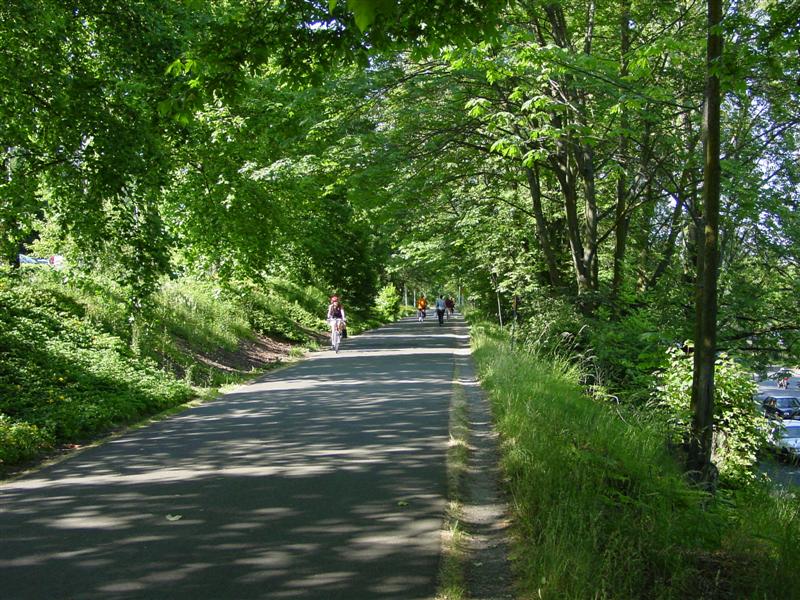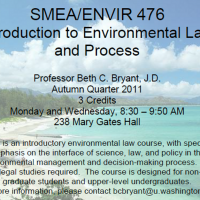Still looking for a course for your autumn quarter schedule? GEOG 205 can help fulfill the ‘Land, Water, Air’ component of the ‘Earth Systems Literacy’ requirement for students that declare the major AUT/10 or later. For those that declared earlier, this course can fulfill the entire ‘Earth Systems Literacy’ requirement.
GEOG 205: Introduction to the Physical Environment Autumn Quarter 2011
NW 5 credits
MTWTh, 11:30-12:20, plus Friday lab
Sln: 20758 (lecture); 20759:20761 (Fri quiz sections)
We live on an extraordinary planet. The activities and conveniences of modern civilization often dull our sensitivity to the miraculous workings of our planet. The majority of us spend most of our time indoors, living in cities, and because of this our dependence on natural processes is not very obvious. This reduced sensitivity to nature in our everyday lives is a downside of civilization. On the positive side, over the past couple of decades the application of scientific methods has yielded an explosion of knowledge about the earth. Accordingly, the objective of this course is to provide you with a broad introduction to a spectrum of dynamic knowledge about the Earth and the impact of humans upon it. An understanding of many interrelationships amongst various elements of the physical environment is critical in studying the complex systems of the earth-atmosphere system. Many of our present environmental problems have resulted because such relationships were not understood adequately if at all by the planet’s human inhabitants.
The first half of the courses will focus on tectonic and geomorphic processes and features, including dynamic plate tectonics, mountain building, seismic, volcanic features and landscapes in the northwest. Surface geomorphic processes and landscape features from chemical and mechanical weathering, mass wasting and mass movements to the erosion and depositional features of running water and wind will be highlighted using rich visual examples from the Pacific Northwest. Human interaction via land-use change and dam construction with natural hydrologic cycles and water budgets, especially in urban areas, will be addressed. Exploration of glacial and periglacial processes and landforms locally and globally will serve as a transition to the discussion of atmospheric processes and climate change. In this regard, the vivid, and scientifically based forecast for our planet in the next forty years, namely, Laurence Smith’s The World in 2050 – a distillation of cutting-edge research into the four world-changing forces of demographic trends, natural resource demands, climate change, and globalization – will be used along with first half of Robert W. Christopherson’s, Geosystems not only to develop an understanding of important and core atmospheric and climatic processes, but equally if not more importantly, to assist students to become more fully aware “…of the challenges and opportunities facing our world in the coming century.”
Often Friday’s recitation/lab time will be spent working in small groups on in-class assignments. At other times recitation/lab time will be used both to reinforce the lecture material and to present new and/or additional material. The labs will, however, be used primarily for introducing and working on practical lab exercises. For example, practical skills such as topographic map reading and interpretation, graphing, data plotting, and graph interpretation, and constructing and interpreting weather maps and symbols will be taught during these weekly Friday lab periods.
The better you understand the Earth, the more you will be sensitive to it, the more you will appreciate it, and the more you will wonder about it. Renewed appreciation, and particularly a rekindled sense of wonder, can help motivate all of us to live more carefully within the limits of our remarkable planetary home.




